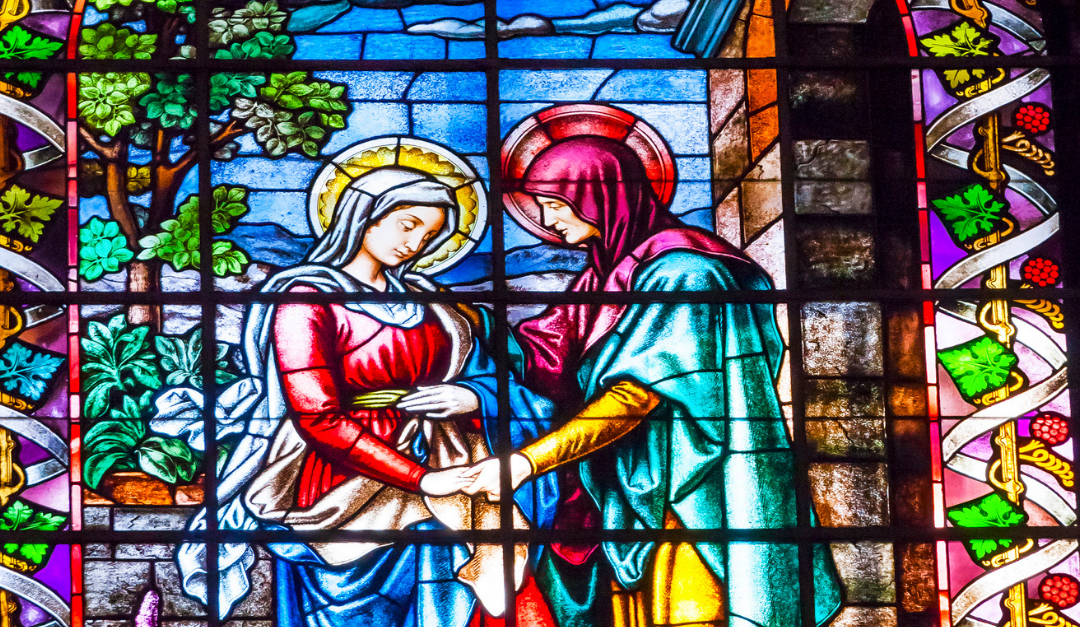When we think about the Christmas story, aside from Jesus, most of our attention goes to Mary. But as I’ve read the advent story again this season, I’ve noticed something that never stood out to me with any significance before. The story of Zechariah and Elizabeth’s pregnancy comes first. In Luke 1:26, we see that Mary’s story is actually told in the context of Elizabeth’s.
In the sixth month of Elizabeth’s pregnancy, God sent the angel Gabriel to Nazareth, a town in Galilee, to a virgin pledged to be married to a man named Joseph. . .
I’ve heard many sermons on how we should emulate Mary’s obedience, courage, and strength in the Lord. But, as I study the story this season, I wonder if Elizabeth’s story doesn’t also offer some important lessons. Here are two lessons we, the Church, can learn from Elizabeth.
1. Elizabeth Saw Pregnancy as God’s Favor
Gabriel appeared to Zechariah and told him that Elizabeth would conceive a baby, even in her old age. But we have no record in scripture of an angel ever telling Elizabeth the same thing. And because Zechariah was unable to speak, we can assume he didn’t tell her clearly either. He could have motioned the news to Elizabeth using charades, I suppose. But scripture makes it clear that””even without hearing from an angel directly””Elizabeth knew her pregnancy was the favor of the Lord.
When we think about unplanned or unexpected pregnancies””do we respond like Elizabeth? Do we acknowledge that the gift of a baby is always God’s favor, a blessing? Or, do we secretly believe that the promiscuous young couple at church gets pregnant as punishment for their actions?
Certainly our actions have consequences””but a baby is always a gift, not a penalty. There are numerous verses in the Bible that talk about children as a gift or a blessing. The question we must ask in our hearts is: Can we believe that children are a blessing even when the circumstances aren’t ideal?
The abortion industry spreads a narrative that pregnancy is punishment for women and that the only way to bring equity to the world is through allowing a “remedy” for that punishment by way of abortion. But, as followers of Jesus, shouldn’t we always see pregnancy as evidence of God’s grace?
2. Elizabeth Didn’t Question Mary’s Story
I also find it interesting that Gabriel didn’t tell Zechariah and Elizabeth that Mary would become pregnant as a virgin. He told Mary about Elizabeth, but he didn’t tell Elizabeth about Mary. How impossible would it have been to even imagine the possibility of a virgin birth? Yet, when Mary shows up at Elizabeth’s home, already pregnant””Elizabeth doesn’t question her. I’ll admit it. If I were in Elizabeth’s place, I’d want to hear some explanation from Mary.
But instead, the Holy Spirit fills Elizabeth as soon as she hears Mary’s voice. Any questions she may have had disappear. She suddenly and supernaturally understands Mary’s situation is a miracle from God. She hears and trusts God’s voice without hesitation.
As the Church, I wonder what a difference it would make if we could respond the same way when we hear of a woman facing an unplanned pregnancy? If we could seek and trust God to help us understand these situations through his eyes instead of through our own?
Of course we continue to educate and encourage young people to abstain from sex until marriage. Of course we continue to promote that marriage is the best and safest place to have and raise a child. Of course we do what we can to educate and equip couples to make lifestyle choices based on what the Bible teaches. But, once a woman is pregnant, there’s quite literally nothing she can do to change the story of how she got there.
What would it look like if we could trust God to work in the hearts of pregnant couples without becoming overly consumed with changing the path that brought them there? After all, only the Gospel and the Holy Spirit can transform hearts. Couldn’t this allow our response to be completely supportive of the path ahead?
Sharing Her Joy
Luke 1:57-58 tells us about the moment Elizabeth gives birth to John the Baptist. The text says that her neighbors and relatives heard that the Lord had shown her great mercy and that they, “shared her joy.”
I wonder what our world would look like if we could truly share the joy with every couple facing an unplanned pregnancy. How different would women and men respond to this news if they knew our response, as the Church, would be to support them and share their joy without judgment? Perhaps the story of Elizabeth can remind us that God’s plans are not like ours and that he can work through every story for his glory.

